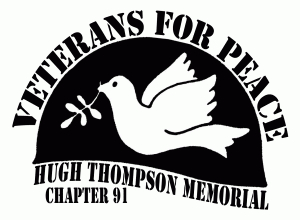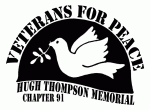This article was originally published by The Hill.
The U.N. just concluded the Nuclear Non-Proliferation Treaty (NPT) Preparatory Committee with representatives from the 189 signatory nations and of civil society. The meeting was in preparation for next year’s NPT conference and to discuss the current status of fulfilling the obligations under the treaty and in particular, the mandate of the nuclear weapons states for global disarmament. The outcome was a continued foot dragging by the nuclear states motivating a demand for meaningful steps and progress toward disarmament by the other 184 nations in view of current international events.
Recent scientific studies by the International Physicians for the Prevention of Nuclear War on the humanitarian consequences of limited nuclear war have shed additional light on the danger these weapons pose. Describing a hypothetical conflict between India and Pakistan using less than ½ of 1 percent of the global nuclear arsenals, the studies confirm 2 billion people would be at risk of dying due to global climatic change.
Combined with recent scandals involving U.S. ICBM missile controllers and a growing accounting of nuclear mishaps and near misses in our nuclear forces over the years, the sense of urgency for disarmament is greater than ever. It has become a question of who will step forward and speak for humanity.
On April 24, the Republic of the Marshall Islands (RMI) filed the Nuclear Zero Lawsuits in the International Court of Justice against all nine nuclear-armed nations, as well as against the United States in U.S. Federal District Court. RMI claims that the nuclear weapon states are in breach of Article VI of the Non-Proliferation Treaty (NPT), which entered into force 16,121 days prior to the filing. In this David vs. Goliath action this tiny island nation has found the voice to speak on behalf of the world and the other nations signatory to the Treaty.
The case for the Nuclear Zero Lawsuit comes directly from the NPT where Article VI states: “Each of the Parties to the Treaty undertakes to pursue negotiations in good faith on effective measures relating to cessation of the nuclear arms race at an early date and to nuclear disarmament, and on a treaty on general and complete disarmament under strict and effective international control.”
This was the grand bargain that convinced many non-nuclear weapon states to sign the treaty and agree not to develop nuclear weapons of their own. Forty-four years later, with no meaningful negotiations on the horizon and no end in sight to the “step-by-step” process heralded by the permanent five members of the UN Security Council (P5), the RMI has stepped in to change the discourse on nuclear disarmament.
RMI is seeking declaratory relief from the courts that will compel the leaders of the Nuclear Weapons States (NWS) to initiate good-faith negotiations for an end to the nuclear arms race and to nuclear disarmament. They are challenging the leaders of the NWS to answer, on the record, why 44 years have passed and nuclear arsenals continue to be modernized, national security strategies continue to place nuclear weapons at the top of the list, and the P5 don’t even expect to have a “Glossary of Key Nuclear Terms” to talk about nuclear disarmament until 2015.
In addition to the five Nuclear Weapon States named in the NPT, the lawsuit also includes the four nuclear weapon states that are not parties to the NPT – Israel, India, Pakistan and North Korea – which, RMI argues, are bound to Article VI obligations under customary international law.
The RMI is a small sovereign nation, among the smallest in the world. However, their courage could not be greater. Having been a testing ground for 67 nuclear tests between 1946 and 1958, the Marshall Islanders have seen their land, sea and people poisoned from radiation. These tests had an equivalent explosive force greater than 1.5 Hiroshima bombs being detonated daily for 12 years. The Marshall Islanders paid a heavy price in terms of their health and well-being for these destructive tests. They have experienced firsthand the horrible destruction caused by nuclear weapons and those that possess them. They are willing to stand up to the nine nuclear giants and say, “Never again. We have seen the destructive impact of these horrific weapons and vow to do all we can so the world never sees such atrocities again.”
The RMI does not act alone in this action. A consortium of NGOs working to highlight the legal and moral issues involved in the Nuclear Zero Lawsuit has come together around the world coordinated by the Nuclear Age Peace Foundation in Santa Barbara. Respecting the courage of the plaintiff in bringing these lawsuits against some of the most powerful nations in the world they have developed a call to action.
The consortium urges everyone to join them by raising your voice in support of the Nuclear Zero Lawsuit. Go to www.nuclearzero.org, where you can read more about the lawsuits and sign the petition encouraging leaders of the Nuclear Weapon States to begin good-faith negotiations.
Williams received the 1997 Nobel Peace Prize for her work with the International Committee to Ban Landmines (ICBL) and is chair of the Nobel Women’s Initiative. Dodge is a family physician on the Board of the Nuclear Age Peace Foundation and Physicians for Social Responsibility – the U.S. affiliate of the International Physicians for the Prevention of Nuclear War – recipient of the 1985 Nobel Peace Prize.





